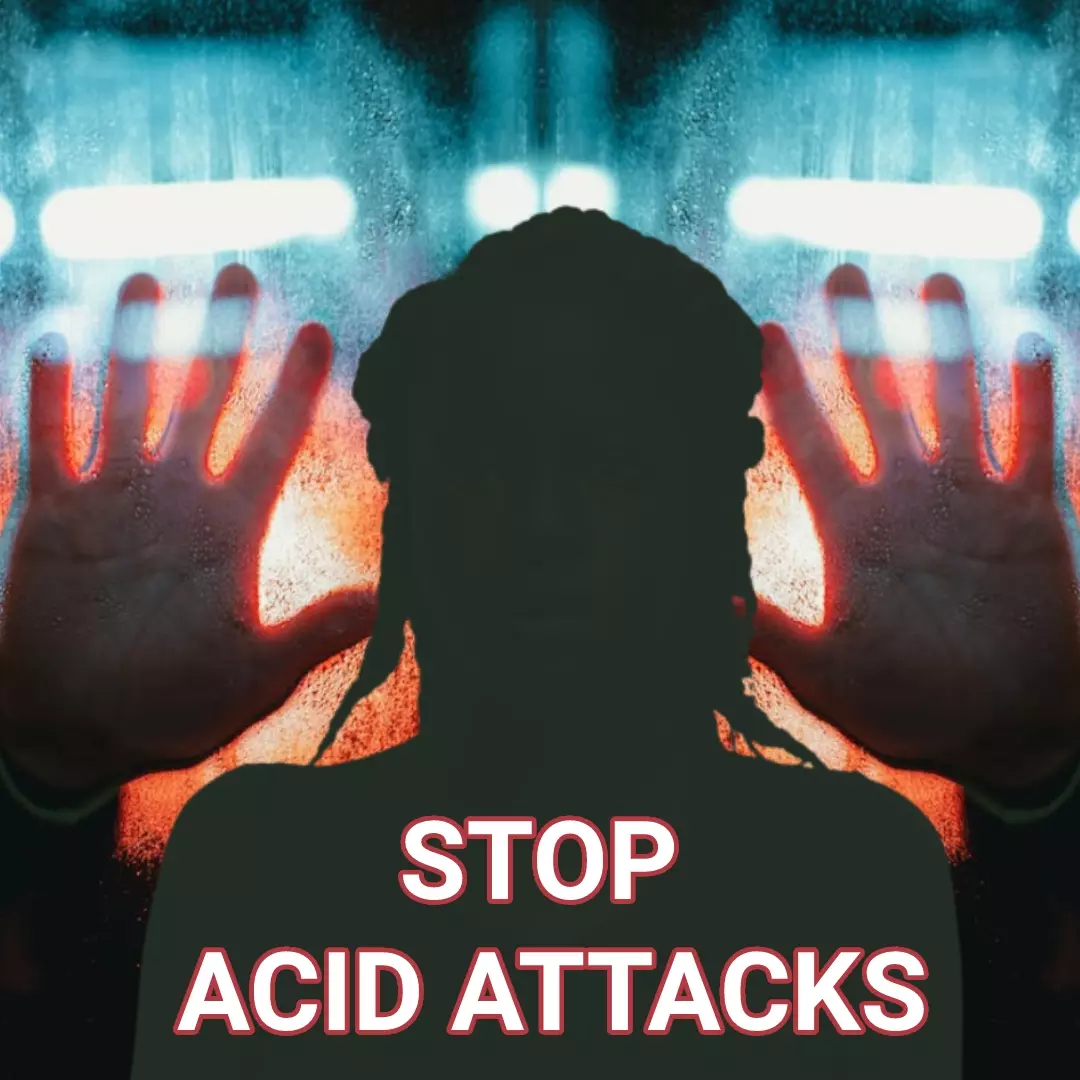(Trigger Warning: The following content contains information on physical violence which some readers may find disturbing)
An overview of the legal provisions concerning the rights of acid attack survivors and the obligations of state governments toward them is discussed in the below-given points. Specifically, it covers the laws outlined in the Indian Penal Code, 1860, Criminal Procedure Code, 1973, and the Scheme for Relief and Rehabilitation of Offences (by Acids) on Women and Children, 2009.
As per the legal definition of an acid attack, the scope of protection afforded by the law, the rights of survivors under the law, and the types of offenses and corresponding punishments that can be levied are described below:
What is an Acid Attack?
An acid attack is the crime of hurting a person by throwing acid on them, administering acid to that person, or doing anything with acid with the intention or knowledge that it would harm the person. An acid attack may result in injuries to a person in any part of the body, causing:
- Permanent or partial damage or deformity to a person;
- Burns on any body part;
- The maiming, dis-figuration, or any form of disability.
Even though the definition of an acid attack is given in the Indian Penal Code, 1860, the Law Commission of India has also defined an acid attack as a form of violence against women where the perpetrator splashes a person or object with acid in order to deface or kill them.
An acid attack can happen anywhere. Incidents of acid attacks have frequently happened at homes, on the streets, and even at workplaces.
Who does the law protect?
The law on acid attacks protects all persons, regardless of their gender or age. An acid attack carried out on a person of any age is punishable under the law. The law also protects foreigners who are survivors of acid attack if it happens in India.
Survivors of acid attacks have the following rights under the law:
Right to Seek Medical Treatment
A survivor of an acid attack has the right to seek medical treatment in both government and private hospitals. The Supreme Court issued guidelines for acid attack crimes where they said that:
No hospital or clinic can refuse to treat acid attack survivors citing the lack of specialized facilities.
Government and private hospitals have to provide survivors with first-aid and medical treatment free of cost.
The court has placed the responsibility for the treatment and rehabilitation of survivors on the state government. It has been held that states and union territories have to take action against hospitals that refuse to treat acid attack survivors.
Right to File a Complaint
Acid attack survivors also have the right to file a complaint against the perpetrator. The survivor’s relative, friend, acquaintance, or any person who has witnessed the crime, or any person who comes to know of the crime can also file the complaint.
The complaint filed is known as a First Information Report (“FIR”). The FIR is a document that contains the information that police officer fills out when they get information on the commission of a cognizable offense. To learn how to file an FIR, you can read our explainer on ‘How to file an FIR’.
An FIR can be filed at any police station, regardless of whether it has jurisdiction over the commission of the crime or not. This information will then be transferred to a police station with the requisite jurisdiction. This concept is generally known as a Zero FIR. To understand more about zero FIRs, you can read our explainer on ‘Where can FIR be Filed’.
Right to Compensation
Acid attack survivors have the right to seek compensation from the state government’s Victims Compensation Scheme. It provides mandatory compensation for survivors of acid attacks, as well as sexual crimes including sexual assault, murder, kidnapping, etc. Apart from compensation under this scheme, the survivor receives the fine amount that the perpetrator pays for committing the crime, as determined by the Court.
Various state governments have formed Victim Compensation Schemes for acid attack survivors. Keeping in mind that there is a lack of uniformity in the state schemes, and the amount of compensation specified in most of these schemes is too low, the Supreme Court stated that:
The state government must give a minimum amount of Rupees 3 lakh to every survivor. This is the minimum amount, and the state government can provide a higher amount, where necessary.
Any compensation amount must factor in not only the survivor’s physical injuries but also their inability to lead a full life.
The Chief Secretary/ Administrator of the state/UT concerned has to ensure that this amount is paid.
What are the offences and punishments under this law?
Anyone can be punished for the kind of acid attacks given below, regardless of their gender. The crimes are:
Throwing acid or attempting to throw acid: Throwing acid on a person and hurting them is a crime. The punishment for throwing acid is a minimum jail time of 10 years that can be extended to life imprisonment, along with a fine that is reasonable enough to meet the medical expenses of the acid attack survivor.
Attempting to throw acid on a person is also a crime. The punishment is jail time of a minimum of 5 years and can be extended to 7 years, along with a fine.
Helping someone throw acid: Helping someone throw acid is also a crime. Helping someone commit a crime is known as abetment under the law. The punishment for abetment is the same as the punishment for throwing or attempting to throw acid on another person.
Refusing to treat or provide free immediate treatment to an acid attack survivor: An acid attack survivor has a right to medical treatment and a hospital refusing to provide such treatment is a crime under the law. The survivor can file a complaint before the police against a person who refuses to treat them.
Besides the specific acid attack crimes in the Indian Penal Code, other crimes can also be implicated or written in the FIR or charge sheet by the police in the case of acid attacks. These include:
- Murder
- Attempt to murder
- Hurting someone with dangerous weapons, and
- Causing grievous hurt
Are the offences bailable or non-bailable/ cognizable?
The crime of throwing or helping someone throw acid, is both cognizable and non-bailable.
A cognizable offense is a crime for which a police officer can arrest the perpetrator without a warrant; and a non-bailable offence is a crime for which bail is not a right and the discretion lies with the court to either grant it or not. To learn more about bail in non-bailable offences, you can read our explainer on Bail for Non-Bailable Offences.
Also Read: Recycled Plastic Is More Toxic Than Original Parts, Can Lead To Microplastic Pollution: Greenpeace
https://thelogicalindian.com/h-upload/2023/05/25/500x300_231792-web-51.webp
Law
2023-05-25 12:16:15.0
All You Need To Know About Acid Attack Laws In India












